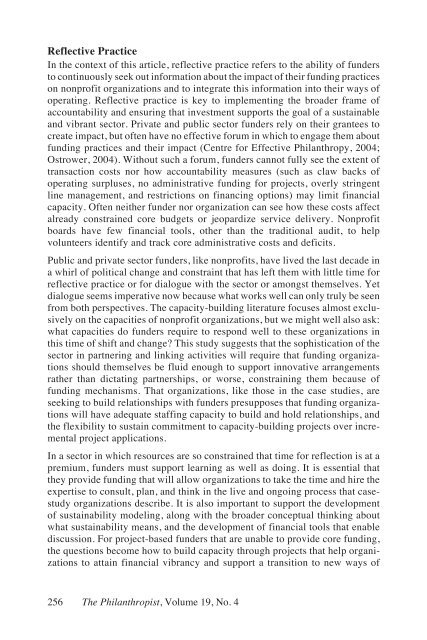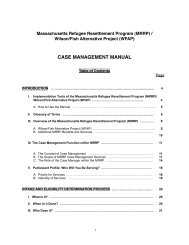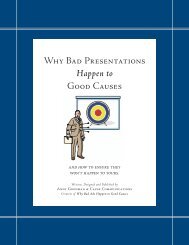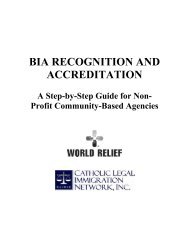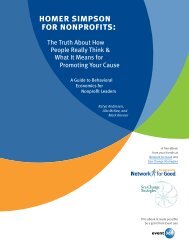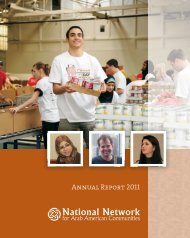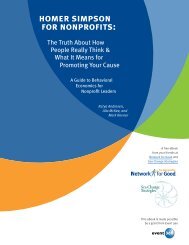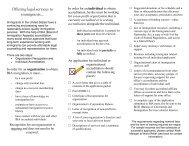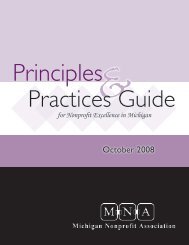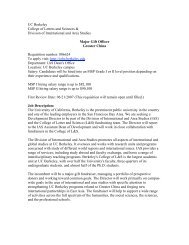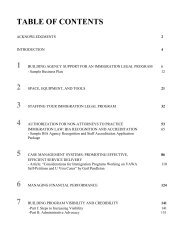Print this article - The Philanthropist
Print this article - The Philanthropist
Print this article - The Philanthropist
You also want an ePaper? Increase the reach of your titles
YUMPU automatically turns print PDFs into web optimized ePapers that Google loves.
Reflective Practice<br />
In the context of <strong>this</strong> <strong>article</strong>, reflective practice refers to the ability of funders<br />
to continuously seek out information about the impact of their funding practices<br />
on nonprofit organizations and to integrate <strong>this</strong> information into their ways of<br />
operating. Reflective practice is key to implementing the broader frame of<br />
accountability and ensuring that investment supports the goal of a sustainable<br />
and vibrant sector. Private and public sector funders rely on their grantees to<br />
create impact, but often have no effective forum in which to engage them about<br />
funding practices and their impact (Centre for Effective Philanthropy, 2004;<br />
Ostrower, 2004). Without such a forum, funders cannot fully see the extent of<br />
transaction costs nor how accountability measures (such as claw backs of<br />
operating surpluses, no administrative funding for projects, overly stringent<br />
line management, and restrictions on financing options) may limit financial<br />
capacity. Often neither funder nor organization can see how these costs affect<br />
already constrained core budgets or jeopardize service delivery. Nonprofit<br />
boards have few financial tools, other than the traditional audit, to help<br />
volunteers identify and track core administrative costs and deficits.<br />
Public and private sector funders, like nonprofits, have lived the last decade in<br />
awhirlofpoliticalchangeandconstraintthathasleftthemwithlittletimefor<br />
reflective practice or for dialogue with the sector or amongst themselves. Yet<br />
dialogue seems imperative now because what works well can only truly be seen<br />
from both perspectives. <strong>The</strong> capacity-building literature focuses almost exclusively<br />
on the capacities of nonprofit organizations, but we might well also ask:<br />
what capacities do funders require to respond well to these organizations in<br />
<strong>this</strong> time of shift and change? This study suggests that the sophistication of the<br />
sector in partnering and linking activities will require that funding organizations<br />
should themselves be fluid enough to support innovative arrangements<br />
rather than dictating partnerships, or worse, constraining them because of<br />
funding mechanisms. That organizations, like those in the case studies, are<br />
seeking to build relationships with funders presupposes that funding organizations<br />
will have adequate staffing capacity to build and hold relationships, and<br />
the flexibility to sustain commitment to capacity-building projects over incremental<br />
project applications.<br />
In a sector in which resources are so constrained that time for reflection is at a<br />
premium, funders must support learning as well as doing. It is essential that<br />
they provide funding that will allow organizations to take the time and hire the<br />
expertise to consult, plan, and think in the live and ongoing process that casestudy<br />
organizations describe. It is also important to support the development<br />
of sustainability modeling, along with the broader conceptual thinking about<br />
what sustainability means, and the development of financial tools that enable<br />
discussion. For project-based funders that are unable to provide core funding,<br />
the questions become how to build capacity through projects that help organizations<br />
to attain financial vibrancy and support a transition to new ways of<br />
256 <strong>The</strong> <strong>Philanthropist</strong>, Volume 19, No. 4


